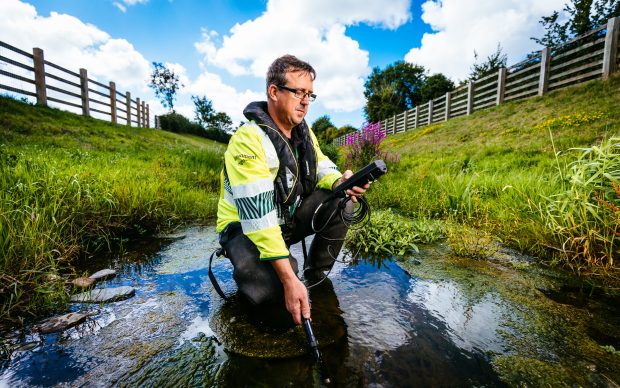
Regulation works. Since the EA was established in 1996 our regulation of polluting industries has helped clean up the air we breathe, the rivers and coastal waters we cherish, and the land we live on. Our new report, Regulating for People, the Environment, and Growth (RPEG) sets out how we took that work forward in 2019 and the results we secured. There is and always will be more to do on all counts, but it is a record that we and the country can be proud of.
We are publishing this report as many factors are coming together which will shape the future of our regulation. The economic damage done by Coronavirus means we need rapid recovery and the kind of regulation to facilitate that. The UK’s departure from the EU means we are now free to set our own environmental rules. The government has set high environmental ambitions, including that we will be the first generation to enhance nature rather than degrade it. There is popular pressure for a greener world. And at COP26 in Glasgow later this year the international community has an opportunity to tackle the climate emergency, the biggest of all threats to our environment, our economy and our planet.
The right response to these challenges is to:
- Reject false choices. We do not have to choose between regulation or sustainable growth. With the right approach we can have both.
- Regulate right. Good regulation is not about a process - what some call red tape - but an outcome: a cleaner, greener world. Good regulation is not about eliminating risk but about managing and reducing it. Good regulation is proportionate, focusing on what will make the most difference and calibrating the costs of the regulation to the benefits we achieve. Good regulation is business friendly, with simple processes, clear goals that make it easy for operators to do the right thing, rewards for those who do and painful consequences for those who do not.
- Invest in the environment. The polluters should pay for the regulation necessary to prevent harm from their activities. And it is right that the government should fund those things - monitoring the environment, enforcing the rules, responding to incidents – that individual operators do not. The EA’s resources come from both these sources, but long term success in enhancing nature will require more investment. Ultimately we will get the environment we are prepared to pay for.
- Seize the opportunities of EU Exit. The UK can now determine the environmental levels of protection it deems appropriate and is committed to increasing that protection. We should now have a debate about which parts of EU environmental law repatriated into UK legislation we should keep, reform or repeal. The test for any change should be simple: will it deliver better environmental outcomes?
- Ensure our future regulation focuses on the main thing: the climate emergency. The EA already plays a critical role in mitigating climate change through our regulation of the industries that emit most of the UK’s greenhouse gasses, and we now have an important new role in administering the UK’s new Emissions Trading System. Meanwhile many of the EA’s other activities, like building flood defences and shaping planning decisions, are helping make the country more resilient to the effects of climate change.
Regulators are people. The people in the Environment Agency who regulate our industries, our farmers, and our water, waste and energy companies are hugely professional, highly committed and extremely hard-working. They do vital things, mostly unseen, often in difficult, unpleasant or downright dangerous circumstances. What they do really does create a better place, and the country can and should be proud of them. I am.
The full report is available online at: www.gov.uk/government/publications/regulating-for-people-the-environment-and-growth
The Environment Agency’s vision of promoting green growth and a sustainable future is a key strand of the EA’s five-year action plan, entitled ‘EA2025’, which can be found online: www.gov.uk/government/publications/environment-agency-ea2025-creating-a-better-place.

Leave a comment